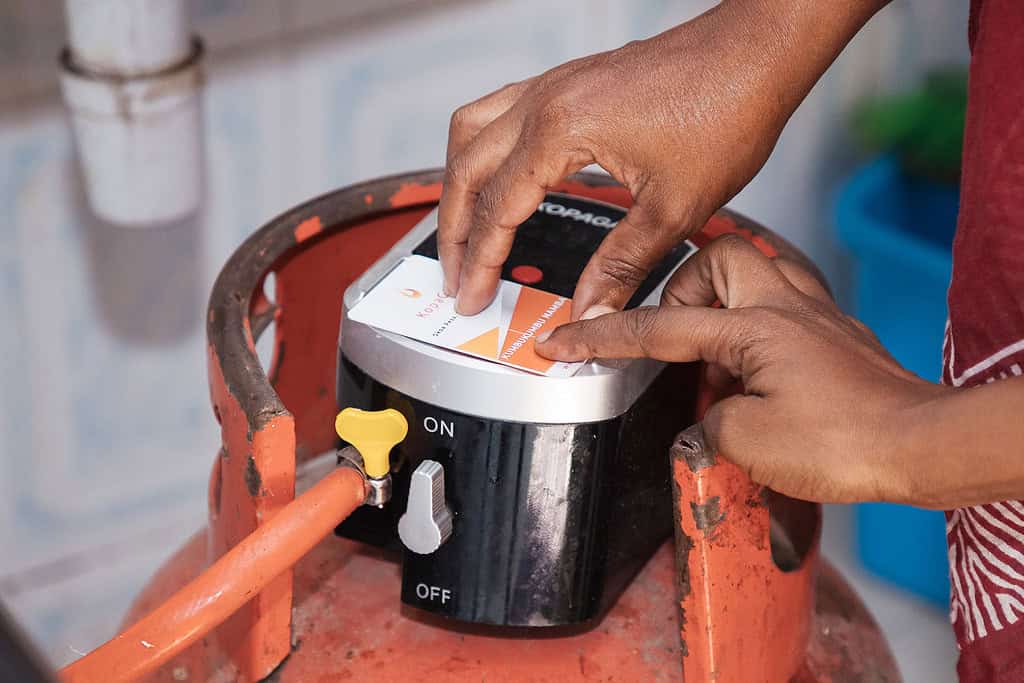Acumen Invests in Innovative Clean Cooking Solution

- Blog
- Energy
- East Africa
Around the world, nearly three billion people do not have access to clean cooking facilities, relying on traditional sources of energy, like wood and charcoal, and inefficient stoves.
About 85 percent of sub-Saharan urban households spend $200 to $500 each year on charcoal, which can represent up to 15 percent of a household’s income. Clean cooking solutions present an affordable and energy-efficient alternative for low-income households, significantly reducing indoor air pollution while helping them spend less on fuel.
Clean cooking companies have made decent progress in the last decade with 53 million units sold in aggregate since 2010. However, building a market and getting customers to follow is easier said than done. The companies face difficult challenges in setting affordable and attractive price points, changing consumer behavior, and raising market awareness.
Since 2014, we invested in four clean cooking companies—BURN Manufacturing, BioLite, Green Energy Biofuels, and Greenway Grameen—who have operations and distribution channels spanning West Africa, East Africa, and India. These companies have helped Acumen and the market learn more about fuel sources, efficient stove design, customer preferences, and payment innovation.
Our latest investment is KopaGas, a Tanzanian-based clean cooking company bringing highly efficient fuel source, liquid petroleum gas (LPG), to low-income households in an affordable way. KopaGas has developed a smart meter equipped with machine-to-machine technology that enables customers to access this aspiring clean fuel source on a pay-as-you-go basis. KopaGas’ business model eliminates the upfront costs of LPG canisters, which enables customers to only pay for the gas that fits their budgets and needs. Where a typically household will spend $24 per month on charcoal, LPG will meet their needs for $18 per month. LPG has the added benefits of quicker cooking times, healthier household air, and no deforestation effects.
“It is very useful to me because I can see what is going on and it gives me a chance to prepare for money for refuelling it.”
—Stella Godfrey, KopaGas customer
In Tanzania, 96 percent of the country’s 47 million citizens use solid fuels such as charcoal and wood as their primary source of energy for cooking, causing detrimental effects on the safety and respiratory health of families and the country’s ecology. Over 130,000 hectares of forest are destroyed every year to support household energy needs in Tanzania alone.
Tanzania has the key pre-requisites for LPG growth including low market penetration (only 5 percent of Tanzanian households have access to LPG), supportive government regulation, comparatively low import costs for LPG, and high charcoal prices.
Acumen recognized KopaGas as a leader amongst innovative companies bringing new fuel sources to low-income people. The company’s operations accounted for 7 percent of the LPG distributed in Tanzania in 2017. Our Lean Data interviews showed that KopaGas is providing first access to LPG for nearly three-quarters of their customers – most of whom are moving from charcoal and firewood. These customers also displayed incredibly high satisfaction rates and nearly two-thirds of them reported seeing their quality of life very much improve after adopting the KopaGas service. The company’s innovative technology and commitment to providing a radically improved cooking experience for its customers, of whom 48% are living below the poverty line, makes us excited about the future.
KopaGas has a vision of becoming the largest distributor of LPG in Tanzania. Its strong management, efficient operations, and growing customer base leads us to believe they will achieve this goal.
Despite the challenges faced by clean cooking companies, we have reason for optimism. Scalable, financially-viable companies are gaining market traction, and the sector is starting to show more attractive risk-return profiles than ever before to attract investment capital. While much more capital is required—a mere $ 2 million in equity was invested into the sector last year— Acumen is standing with its existing and new clean cooking companies to create a cleaner future for households around the world.